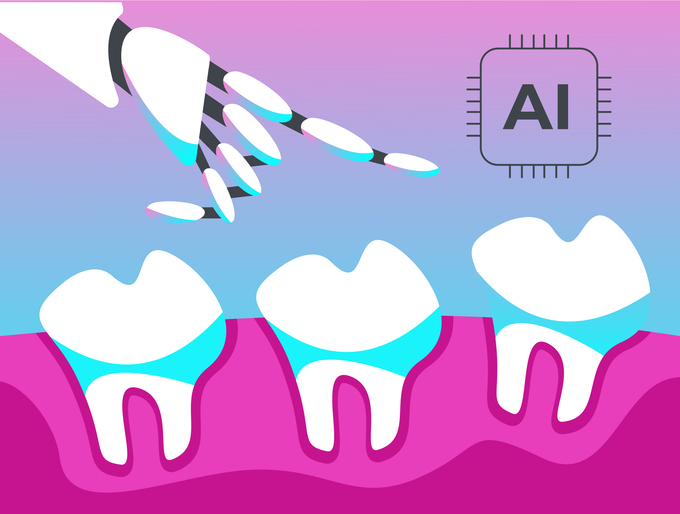
Utilizing AI in postoperative dental care

In a study published in BDJ Open, researchers detailed that artificial intelligence-based embedded GPT large language models may be more effective at providing postoperative dental care than ChatGPT.
The researchers compared the response accuracy, clarity, relevance and up-to-date knowledge of the embedded GPT model employing GPT-3.5-16k with those of the ChatGPT-3.5 turbo model when managing patient concerns and streamlining decision-making. They trained the embedded GPT model to respond to postoperative questions across four dental specialties: operative dentistry and endodontics, periodontics, oral and maxillofacial surgery and prosthodontics. The researchers then validated the responses with 36 dental specialists.
Although both language models performed well, the embedded GPT model demonstrated higher content validity, accuracy and clarity compared with the ChatGPT model. The researchers hope their findings can lead to advancements in health-care applications.
Read more: BDJ Open
The article presented here is intended to inform you about the broader media perspective on dentistry, regardless of its alignment with the ADA's stance. It is important to note that publication of an article does not imply the ADA's endorsement, agreement, or promotion of its content.